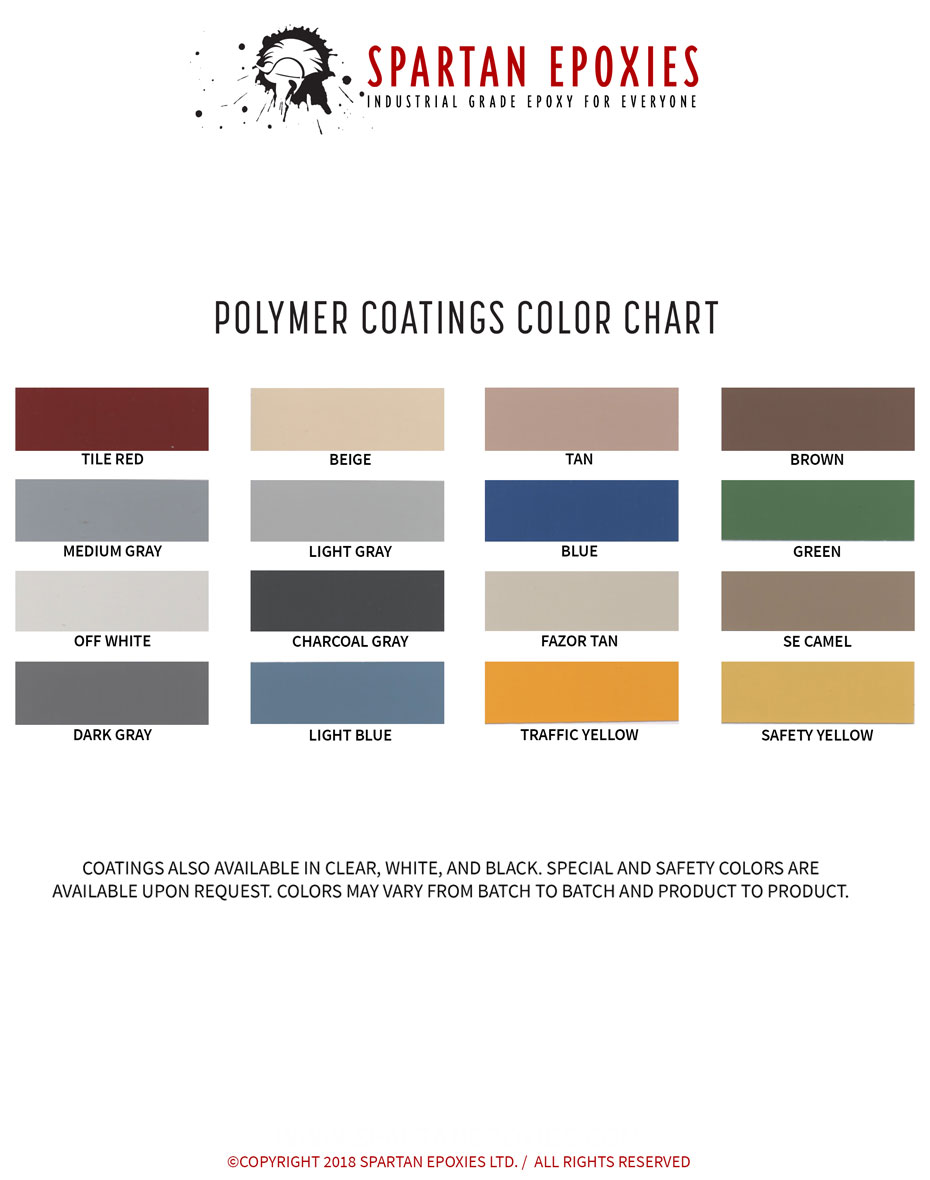FLEX - Flexible Broadcast Epoxy
-
$0.00
Videos and Instructions
FREQUENTLY ASKED QUESTIONS
Large Project? Get a Quote Here
SPE-FLEX / Flexible Broadcast Primer is a two-component 100% solids epoxy designed for sealing traffic surfaces exposed to vehicular or foot traffic. The toughness and elongation eliminate the need to repair hairline cracks. This product is formulated for use in a broadcast system as the basecoat prior to installing epoxy mortars or other suitable topcoats. Recommended for priming with broadcasting as a crack bridging sealer before application of epoxy mortar or topcoats.
Benefits / Features
• Extremely Flexible Product
• Versatile - Can be used as mid coat or top coat
• Great for sealing badly cracked or spider webbed concrete
• Low VOC may contribute to LEED points
• Clear (Tinting Available)
80 sq. ft./gal @ 20 mils
160 sq. ft./gal @ 10 mils
Recoat / Topcoat in 8 to 12 hours
Light Foot Traffic in 12 to 24 hours.

| Instructions | |
| Instructions | 1) PRODUCT STORAGE: Store product in an area so as to bring the material to normal room temperature before using. Continuous storage should be between 60 and 90 degree F. Low temperatures or temperature fluctuations may cause crystallization. 2) SURFACE PREPARATION: The most suitable surface preparation would be a fine brush blast (shot blast) to remove all laitance and provide a suitable profile. All dirt, foreign contaminants, oil, and laitance must be removed to assure a trouble free bond to the substrate. A test should be made to determine that the concrete is dry; this can be done by placing a 4’X4’ plastic sheet on the substrate and taping down the edges. If after 24 hours, the substrate is still dry below the plastic sheet, then the substrate is dry enough to start coating. 3) PRODUCT MIXING: This product has a mix ratio of 9.2# part A to 8.2# part B or one part A to one part B by volume. Standard packages are in pre-measured kits and should be mixed as supplied in the kit. We highly recommend that the kits not be broken down unless suitable weighing equipment is available. After the two parts are combined, mix well with slow speed mixing equipment such as a jiffy mixer until the material is thoroughly mixed and streak free. 4) PRIMING: Primers may be beneficial in some applications, dependent on performance characteristics and substrate condition, but none are required for product application. 5) PRODUCT APPLICATION: The mixed material can be applied by brush or roller. However, the material can also be applied by a suitable serrated squeegee and then back rolled as long as the appropriate thickness recommendations are maintained. Because this material has a short pot life, it is beneficial in some applications to remove the material from the mixing pail by pouring the material onto the substrate and spreading it along the floor. Spreading out the material will allow the applicator more time to work with the material before it begins to cure. Aggregate should be broadcast into the applied material before applying suitable topcoats. Maintain temperatures and relative humidity within the recommended ranges during the application and curing process. If concrete conditions or over aggressive mixing causes air entrapment, then an air release roller tool should be used prior to the coating tacking off to remove the air entrapped in the coating. When using as a broadcast binder, always evaluate performance parameters with a test area which is dependent on aggregate size and thickness, prior to application. Contact your representative for details as necessary. 6) RECOAT OR TOPCOATING: We recommend a suitable topcoat be applied only after broadcasting suitable aggregate into the basecoat. If you recoat or topcoat this product, you must first be sure that the coating has tacked off before recoating. All previous coats that were not applied as a broadcast, should be deglossed to insure a trouble free bond prior to application of recoats or topcoats. It is advisable to test topcoats for suitability prior to application when not in a broadcast system. Colder temperatures will require more cure time for the product before recoating or topcoating can commence. Before recoating or topcoating, check for epoxy blushes (a whitish, greasy film, or deglossing.) If a blush is present, it can be removed by any standard detergent, cleaner prior to topcoating or recoating. Many epoxy coatings and urethanes as well as multiple coats of this product are compatible for use. 7) CLEANUP: Use xylol 8) FLOOR CLEANING: Caution! Some cleaners may affect the color of the floor installed. Test each cleaner in a small area. If no ill effects are noted, you can continue to clean with the product and process tested. 9) RESTRICTIONS: Restrict the use of the floor to light traffic and non-harsh chemicals until the coating is fully cured (see technical data under full cure). It is best to let the floor remain dry for the full cure cycle. Dependent on actual complete system application, surface may be slippery, especially when wet or contaminated; keep surface clean and dry. |
| Product Guide | |
| Coverage | 32 to 160 sq. ft. / gallon at 10 to 50 mils wet thickness. |













